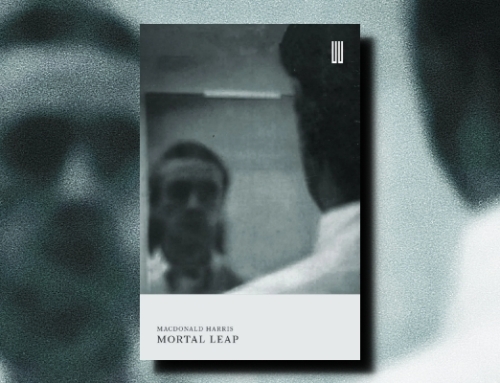Child of God
by Cormac McCarthy (1973)
Vintage (1993)
197 pp

I don’t know if I’ve ever read a book as disturbing as Cormac McCarthy’s third novel, Child of God. It is my first venture to McCarthy pre-Blood Meridian (which I couldn’t finish at the time) when he was still writing about Tennessee. What surprised me most about this book, however, wasn’t necessarily how disturbing it was, though I certainly wasn’t prepared for that. No, what surprised me most was how absolutely wonderfully written it was. I guess I assumed, stupidly, that McCarthy had grown into his lyrical yet simple style, perfected in The Road. This book, however, shows that he had a gift for laconic depictions of depravity long ago.
Some people shouldn’t read this book. I’ll say it. Though not gratuitously graphic, in his exacting depictions of violence and degradation McCarthy drags the reader through the shocks. Right when you expect him to switch scenes and let us simply numbly imagine what is taking place, he keeps writing. And it’s so powerful, you stay around and watch (no wonder the Coen brothers connected with him so much — and I wonder if this book was where they got the idea of the wood chipper in Fargo — don’t worry: here the wood chipper is just a threat). This type of writing, so exact and able to pull at deeply rooted, hidden fears, is why I had to stop reading Blood Meridian — brilliant but I couldn’t tackle it at the time. While I believe sometimes such imagery is more powerful when done offstage, sometimes that is not the case. Much of this book is done offstage, but those parts that aren’t are importantly grotesque.
The subject character of this book is Lester Ballard, a type of villain that frightened me much more than Aton Chigur in No Country for Old Men and I think Ballard is, unfortunately, much more common. Here is how McCarthy introduces him:
To watch these things issuing from the otherwise mute pastoral morning is a man at the barn door. He is small, unclean, unshaven. He moves in the dry chaff among the dust and slats of sunlight with a constrained truculence. Saxon and Celtic bloods. A child of God much like yourself perhaps.
I’m not sure how to take that last sentence. I’m not sure if we’re supposed to find the humanity in Ballard (though Ballard is never excused or excused away by McCarthy) or if we’re supposed to find Ballard in the recesses of our own humanity. Probably it’s both at the same time, as might be suggested with this later exchange in the book:
You think people was meaner then than they are now? the deputy said.
The old man was looking out at the flooded town. No, he said. I don’t. I think people are the same from the day God first made one.
But still, Ballard is different. In some way — we don’t fully apprehend the scope — Ballard is mentally deficient. Though people comfort themselves by passing him off as a harmless, small-sized idiot, they recognize that his deficiencies are made menacing because he packs around a rifle and because of his threatening sexuality which is visible in the way he ogles at the women and girls. Understandably, no one likes the vulgar Ballard and his attitude. He’s a loner who gets pushed farther and farther out at the periphery of this community that already had plenty of unseemly elements pushed out to the fringe, like moonshiners and like this tragic (but darkly comedic) family:
The dumpkeeper had spawned nine daughters and named them out of an old medical dictionary gleaned from the rubbish he picked. These gangling progeny with black hair hanging from their armpits now saw idle and wide-eyed day after day in chairs and crates about the little yard cleared out of the tips while their harried dam called them one by one to help with chores and one by one they shrugged or blinked their sluggard lids. Urethra, Cerebella, Hernia Sue. They moved like cats and like cats in heat attracted surrounding swains to their midden until the old man used to go out at night and fire a shotgun at random just to clear the air.
When we meet him his home is being taken from him by the county. He ultimately ends up living in some caves away from the town.
The book presents Ballard from multiple perspectives. At times a third person close narrator is telling us about Ballard’s movements:
When he woke it was to agony. He sat up and gripped his feet. He howled aloud. With gingery steps he crossed the stone floor to the water and sat and put his feet in. The creek felt hot. He sat there soaking his feet and gibbering, a sound not quite crying that echoed from the walls of the grotto like the mutterings of a band of sympathetic apes.
At other times we get him from a group of men telling stories by the road. At others, it’s from someone deep in thought, reminiscing, like this one where we just heard about when the nine-year-old Ballard punched a boy named Finney in the nose:
The Finney boy just looked at Lester Ballard and went on up the road. I felt, I felt . . . I don’t know what it was. We just felt real bad. I never liked Lester Ballard from that day. I never liked him much before that. He never done nothin to me.
And then there are other times, and this is where this book seems particularly Melvillean, where the narrator, whoever it is at this point, discusses with the reader the horror of what we’re witnessing together:
He came up flailing and sputtering and began to thrash his way toward the line of willows that marked the submerged creek bank. He could now swim, but how would you drown him? His wrath seemed to buoy him up. Some halt in the way things seems to work here. See him. You could say that he’s sustained by his fellow men, like you. Has people the shore with them calling to him. A race that gives suck to the maimed and the crazed, that wants their wrong blood in its history and will have it. But they want this man’s life. He has heard them in the night seeking him with lanterns and cries of execration. How then is he borne up? Or rather, why will not these waters take him? He came up flailing and sputtering and began to thrash his way toward the line of willows that marked the submerged creek bank. He could now swim, but how would you drown him? His wrath seemed to buoy him up. Some halt in the way things seems to work here. See him. You could say that he’s sustained by his fellow men, like you. Has people the shore with them calling to him. A race that gives suck to the maimed and the crazed, that wants their wrong blood in its history and will have it. But they want this man’s life. He has heard them in the night seeking him with lanterns and cries of execration. How then is he borne up? Or rather, why will not these waters take him?
Again, is it a mercy to Ballard or to humanity that he drown? And again, that’s a false dichotomy. While McCarthy never suggests that Ballard is excused by his psychology or his past, I found the key to be that in the moment Ballard starts his steep descent into depravity he is most recognizable to us — as us. It’s a small moment brought about not by Ballard but by dumb luck, and Ballard has a choice to make. It takes him an excruciatingly long time to make the choice, and all the while we’re begging him to walk away, just walk away. He keeps stepping away and then stepping back for just a little bit more, and then the prescient words of the smith ring true: “It’s like a lot of things, said the smith. Do the least part of it wrong and ye’d just as well to do it all wrong.”
So, after moving straight to the top of my most disturbing book of the year if not of all time, I can look around the ugliness of the subject and see the power and the importance of the discussion. Some of you shouldn’t read this book — but you won’t be sorry if you do.









I am becoming a great fan of McCarthy. If I can make it through the disturbing, I am going to have to keep an eye out for this one. More frightening then Aton – wow!
I’ve always been a huge McCarthy fan. If your readers want to start with something of his that’s a bit more mellow I’d recommend his first novel – Suttree. It’s a good way to dip your toes into the water.
I think what is so wonderful about McCarthy’s writingis his ability to stop you cold with one sentence. Like the quote you included in your review…”A child of God much like yourself perhaps.” For me, first reading that line was like a bucket of water in the face. Suddenly the entire story shifted.
He does that again and again in his novels. I think it’s because his writing is so beautiful, and what he describes is so ugly.
Christine, I think he is more frightening than Anton because he is so much more common, though I must admit I’d rather cross Ballard than Anton!
Tolmsted, wasn’t Sutree his fourth novel? I guess he did spend years and years writing it. Did he start it before The Orchard Keeper? I haven’t read it yet and wasn’t looking forward to it before your comment. I was under the impression it was a bit long-winded. You give me hope!
Trevor –
I stand corrected. But for some reason I still remember reading somewhere it was his first novel – perhaps his first attempt?
I really enjoyed it, but it’s completely unlike his other novels. It is long-winded… but there was something about it. I can’t guarantee everyone will feel the same.
It’s definitely enough for me that you liked it, tolmsted. Now, if I can only get someone to recommend the last two books in the Border Trilogy . . .
He’s an extraordinary writer of ugliness, isn’t he?
I have to admit, I hadn’t heard of this one, wonderful writing as ever though. I suspect given my fondness for noir my tolerance for sheer inhumanity may be greater, which could be a benefit I suppose, but the thing with McCarthy is the skill of his writing makes you feel the horror. It’s not stuff one can, or should, get comfortable with.
I agree Max. I’d be interested in your views on this book. It’s a quick quick read, but very powerful.
Trevor,
Having read all of McCarthy’s books, beginning long before he was a household name, I would say that the 2nd book in the Border Trilogy, The Crossing, is his most powerful, and best work. It may not be as “great” as Blood Meridian, and it is not an easy read, but may be the most rewarding out of everything he’s written.
I’d also recommend the Stonemason, a Play in Five Acts.
Although it’s not quite as universally praised among McCarthy’s hardcore, I also found Cities of the Plain one of his most haunting. The Crossing and Cities have haunted me since I read them years ago, and re-read them, although it was very difficult to read the Crossing again because…
I am a “man’s man” and don’t show my emotions a lot, but those two books made me cry like a toddler.
Your good opinion is all I need, Tommy. I liked All the Pretty Horses<\em> so much that it is hard to imagine I wouldn’t finish the trilogy someday. Then again, it was that enjoyment that made me hesitate. I didn’t want to ruin it through dilution. But I’ve enjoyed immensely the four McCarthy novels I’ve read, so I think my trust in him would have won the day. Your word, though, makes me anxious!
I think you’ve complicated this.
A child of God much like yourself perhaps.
You have to admit Lester is human, much like yourself.
Why? Begs the question, would you write about such a depraved being?
Because he is like a man, he is a man, and in that a moral warning.
A good essay, mind.
Thanks for the comment, Lester. I haven’t been back to read this in, well, a bit over six years! I still remember how I felt when I read it, though!